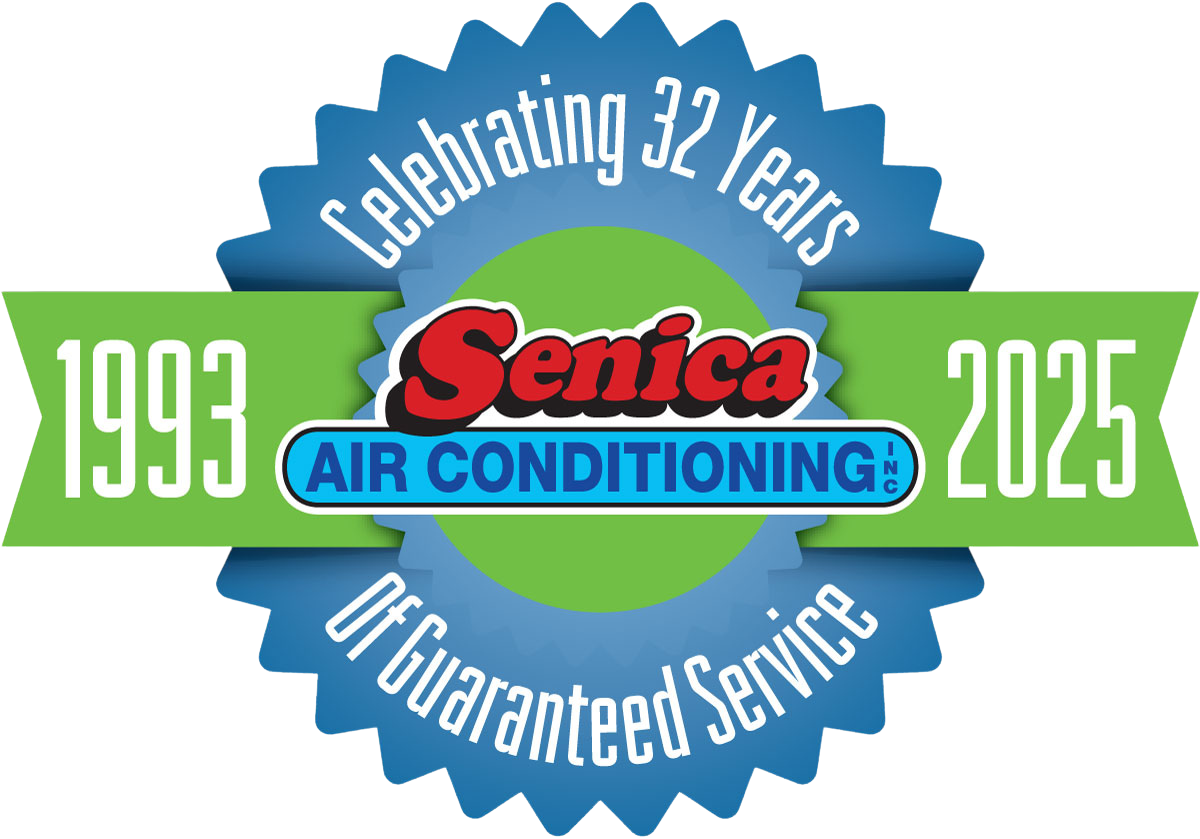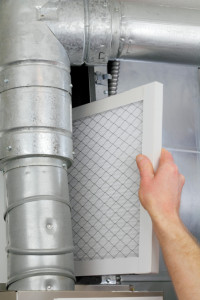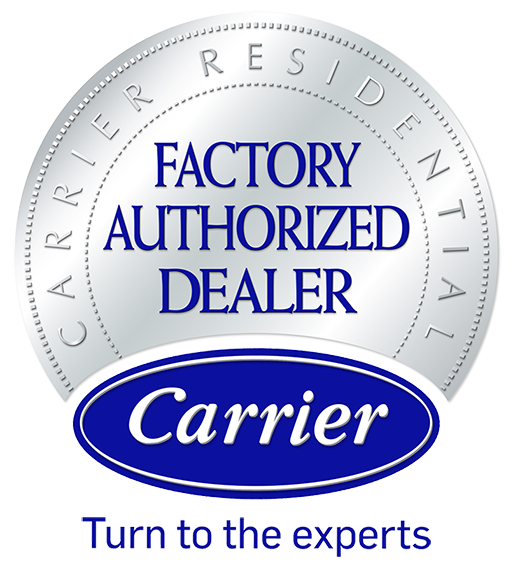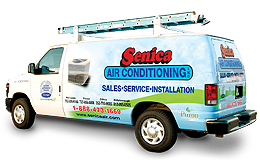The simplest and most effective form of maintenance for an air conditioner or heat pump is regular air filter changes. It may seem like air filters are minor components of your cooling system, but these simple items can have a significant effect on the efficiency, reliability and overall function of HVAC equipment. Here’s a brief introduction to air filter maintenance and why keeping air filters clean and fresh will prolong the life of cooling equipment and give you better levels of indoor comfort.
The Purpose of Air Filters
The air filters in your cooling system are responsible for helping to clean indoor air and maintain an acceptable and healthful level of indoor air quality. They remove airborne particulates such as dust, mold, hair, dander, pollen, and other contaminants and keep them from returning to your home environment.
Most air filters are made from material such as spun fiberglass, which provides an economical media for capturing airborne particulates. Higher-efficiency filters are frequently made of pleated cloth, which is even more effective at capturing and holding particles.
Your cooling system is designed to circulate air from the unit, into your home, and back to the cooling equipment again. When the expended air is returned, it’s cleaned by the air filters before being cooled and distributed again. The warmer old air is forced through the filters, which trap and hold the particulate matter within the filter material. Through this process, your indoor air is continually cleaned as it circulates through the cooling system.
Air filters are also important for maintaining airflow within your air conditioner or heat pump. This airflow is necessary for proper operation of the system and for maintaining the equipment’s efficiency and effectiveness.
Effects of a Dirty Air Filter
Dirty air filters are a significant cause of cooling system malfunctions and breakdowns. This happens when the filters get clogged with particulates and debris, which blocks the airflow the system needs to work properly. A large number of costly air conditioner repairs can be traced back to forgetting about or ignoring the effects of a dirty air filter.
The effects of a dirty air filter also include the following:
- Lowered indoor air quality with an increase in airborne dust, pollen, mold and other particulates.
- Reduced cooling effectiveness, which means your indoor environment will be less comfortable and it will be more difficult to keep your home at the temperature you prefer.
- Decreased system efficiency, which reduces the cooling equipment’s ability to get the greatest effect from the energy it uses. This wastes energy and drives up your monthly cooling bills considerably without a corresponding improvement in home comfort.
- Potential for abrupt, even total breakdowns of the cooling system.
Replacing Air Filters
Air filters are usually housed in a special slot inside the cabinet of the cooling system. They’re designed to quickly and easily slide in and out of this slot, making filter changes a very minor task. Higher-efficiency filters, such as HEPA filters, may have specialized mounting brackets or holders, so consult your owner’s manual or with your HVAC specialist for changing instructions.
In most environments, air filters should be checked every month and changed when they get dirty. Otherwise, they should be changed every three months as part of routine maintenance and upkeep on your cooling system.
An effective way to check if the air filter is too dirty to use is to hold it up to a light source such as a bare light bulb or lamp. If you can’t see the light from this source through the filter, it’s too dirty to use and should be changed.
When you buy a new filter for your cooling system, pay particular attention to the filter’s minimum efficiency reporting value, or MERV rating. Standard air filters are rated with MERV numbers from 1 to 16, with higher numbers indicating greater efficiency. MERV filters around 6 to 8 are the most commonly used. Before installing a high MERV filter, make sure your cooling system can handle these types of thicker, denser filters.
Customers in and around St. Petersburg, Tampa, Clearwater and surrounding communities in Florida, can rely on Senica Air Conditioning, Inc. for professional air conditioning and heating service, installation and maintenance. Contact us today at (866) 881-5935(866) 881-5935 FREE for more information on the effects of a dirty air filter on your home cooling system, for advice on changing filters, and for access to a selection of air filters that meet your home comfort and air filtration needs.




